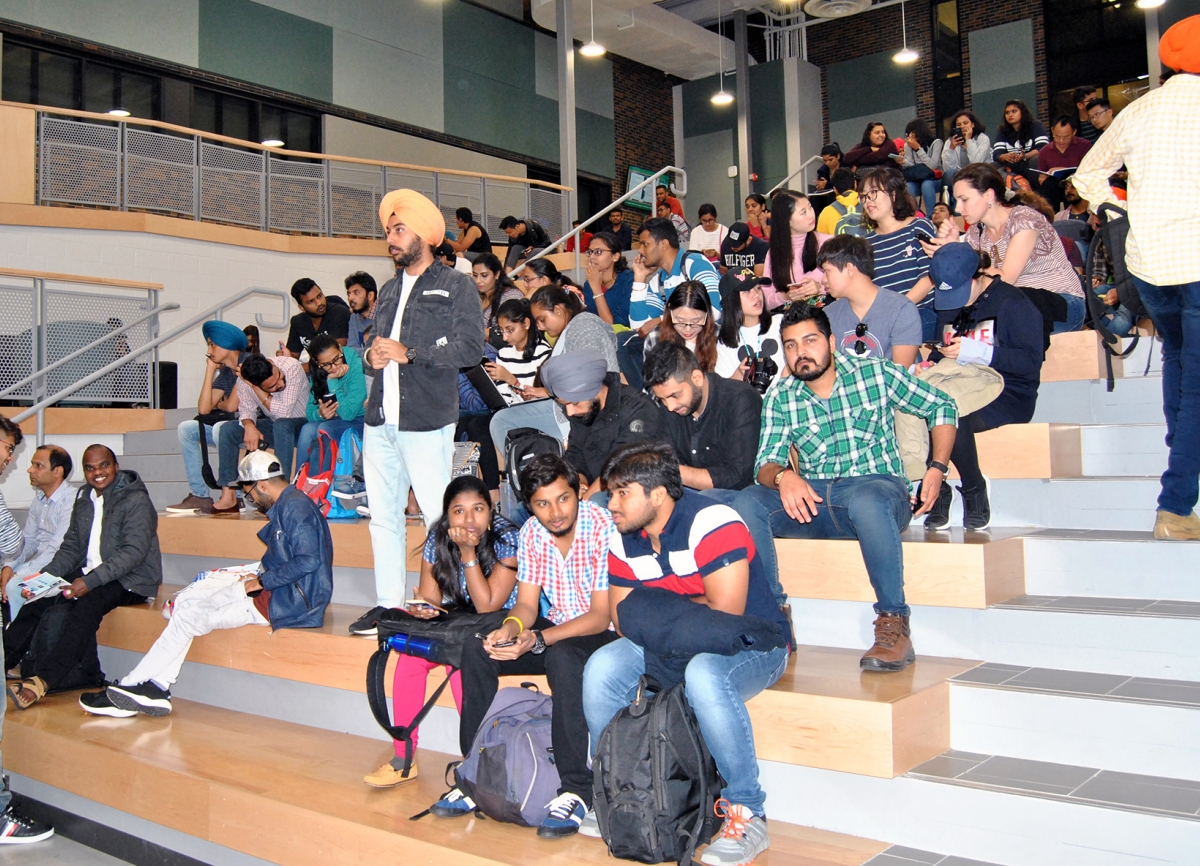
ANALYSIS AND OPINION
By Bernard de Vaal,
St. Clair Media Convergence Graduate
The critique that follows is written in reaction to an endless amount of unsubstantiated replies from striking faculty members and OPSEU union members on the writer’s question: “What rights do students – and, in particular, international students – have in the ongoing college strike?”
First, let me set some of your very naive and short-sighted replies straight, regarding the “student” you are talking to. I’ll also refresh your perception of who the students are who carry the brunt of this on-going college strike.
I’m an international student. I’m 41 years old, with a wife. I paid nearly FOUR TIMES what any domestic students paid for their two semesters. Most local students receive OSAP, which puts very little immediate financial strain on them. The nearly 40,000 international students who make up nearly 17 percent of the full-time college students in Ontario pay both these semesters upfront.
(Read Mohawk College’s Steve Kosh’s critique on the strike for a further explanation of full- and part-time student numbers: http://bit.ly/2hyL8LI.
For every one international student, we provide financial liquidity to the colleges to the tune of four domestic students’ tuition, yet to be converted into actual money. The majority of us budgeted for every expense up to the final day of our studies. We’re desperately reliant on the qualification we set out to earn. We pack lunches, take the bus, and dress warm in our houses to keep our utility bills down.
I’ve worked in the media and performing arts industry in South Africa for 17 years prior to coming here. Due to my skin colour, the institutional (“reverse”) affirmative action meant I was kept in a junior position for four years in my final job at the national broadcaster. I saw people much less qualified than myself get placed in top positions without the experience or qualifications. If you did decide to step away due to these unfair practices, there were hordes of other “previously advantaged” job-seekers, equally as qualified and eager to take your place for even less money.
I’m mentioning this to let you know that I’m no stranger to unfair labour practices. From my perspective, your strike screams “first world problems”. But this I guess, is your geographical right.
I was a full-time contract lecturer at Stellenbosch University for four years, and know exactly the amount of work that goes into teaching.
If you’re telling me that for every hour of teaching, the teachers put in an equal amount of time preparing, you are downright lying. Lesson plans of career professors’ lessons stay more or less consistent, with small adjustments made from semester to semester.
The quality of instruction we gained in St. Clair College’s Media Convergence program from our part-time and partial-load professors – as you inaccurately refer to them here – are the result of them being actively involved in their respective industries. (To become a “professor” in the purest sense of the word, you need a Masters and Ph.D.. Your use of the word comes solely from the French term for “teacher”.)
They have first-hand, experiential knowledge of the practical and procedural workings, which is the single reason why myself and most all other students choose the college instruction environment to that of a university.
Their preparedness and attentiveness to our mostly practice-based projects was a result of them having one foot in the industry, and staying up-to-date and on the cutting edge of the hardware and software we need to step directly into jobs.
All your presumed efforts in “aiding students", all your utterings of understanding our plight and sympathizing with our predicament, have become mustard after the meal.
It’s not the nearly $30,000 worth of savings invested into my future that you’re stealing from me. It’s not even comparing your own financial loss and hardship on the picketing line with our situation as students, affected by a labour problem that we weren’t consulted on or informed about prior to signing over our money, time and trust in what has now come forth as being a “broken” system. It IS the simple fact that you are using our unjustly inherited predicament as a bargaining tool to hopefully pressure the College Employer Council into accepting your demands.
You say that you have all this sympathy, and feel for the incidental repercussions for us, when you know all too well that if you waged this battle during the summer months we might have been spared. However, the effectiveness of your campaign relies primarily on the detrimental effect you can prove it has on us … The ones who do not have a job to strike over … The ones who were not consulted on the strike, do not have a say, and have no formal avenue to voice their grievances.
With the strike in its fifth week, it’s been proven beyond reasonable doubt to be unsuccessful. It’s now simply driven by injured sentiments of “Well, we’ve come this far, we might as well go all the way.”
If you’ve voted "No" on the offer of settlement because the offer from the colleges has not changed since the strike started, what kind of bargaining have you been waging?
Yours is not a fight for righteousness – the one you claim to be for all those “average Jills and Joes” who might also fall prey to the relentless and soulless college-money-machine.
Even though your plight was justifiable, it’s turned to selfish indulgence steered by a broken moral compass that is sure to be remembered only by those you actually forgot to consider – the students.







